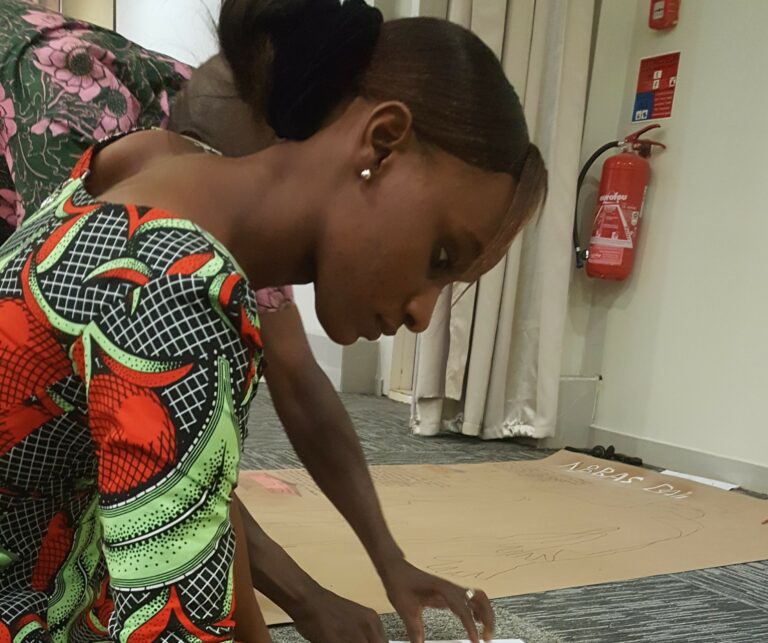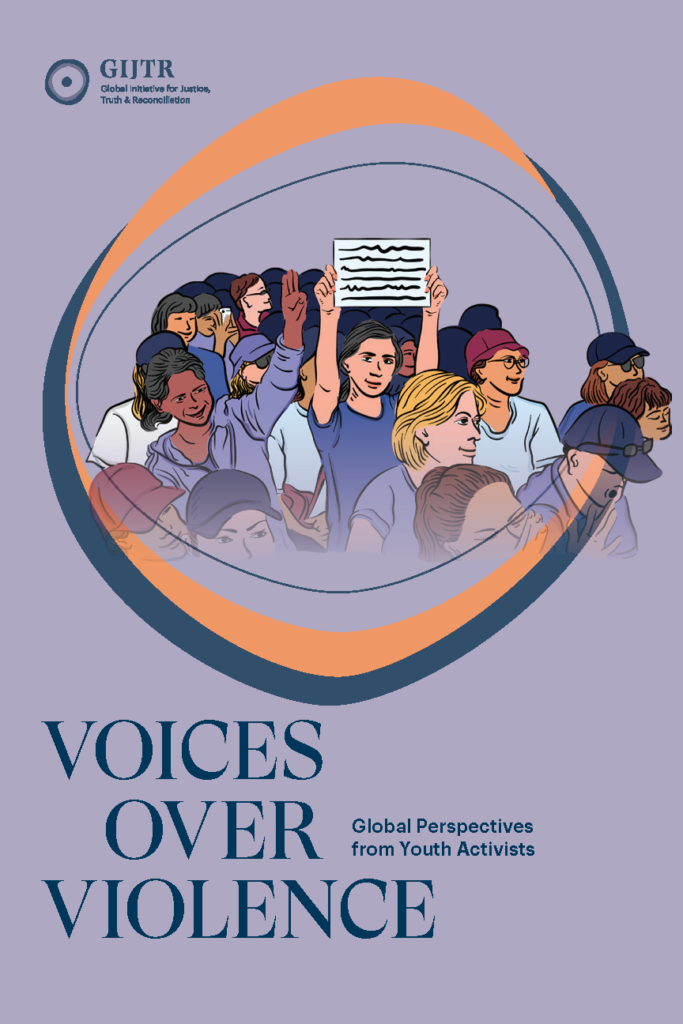CENTERING YOUNG ACTIVIST VOICES IN ATROCITY PREVENTION
The work of the Global Initiative for Justice, Truth and Reconciliation (GIJTR) in conflict and post-conflict countries has consistently demonstrated that youth and youth-led organizations are positioned to play a crucial role in atrocity prevention efforts.

Context
From the student-led protests in Hong Kong in 2019, to the youth driven protests in Belarus following the national elections and violence against demonstrators, to the Black Lives Matter protests that erupted around the globe in 2020, youth have consistently taken to social media platforms to advocate, mobilize and connect with their peers on pressing peace, security and justice issues. Despite these trends, youth are frequently overlooked within transitional justice and atrocity prevention programming and are an untapped resource that can contribute to atrocity prevention and early warning sign identification. Youth and youth-led organizations are positioned to shape and contribute to an informed citizenry willing and ready to hold governments and perpetrators accountable and to create active citizens out of youth which is key to reestablishing the relationship between citizens and the state that has been marred by violence and distrust from past violence and conflict.
Project Details
Based on the Consortium’s experience, GIJTR conducted the Centering Young Activist Voices in Atrocity Prevention project to address continued gaps in youth-centered atrocity prevention efforts. Through a combination of online and in-person trainings, ten participants from five contexts engaged in atrocity prevention education and were introduced to social media’s role in early warning and early response strategies, grassroots strategies for non-recurrence and the use of multimedia platforms as a primary medium of engagement in and monitoring of atrocity prevention. The project includes a subgrant component for participants to develop and implement community initiatives that contribute to atrocity prevention in their context. By centering and drawing on young activist voices, this project will reinforce the role of youth as both knowledge producers and as positive agents for atrocity prevention and conflict transformation.
Objectives
Build the capacity of young activists to engage in atrocity prevention efforts
In months one through three of the project, Consortium partners drafted, translated and distributed a call for applications to potential youth-led organizations working in atrocity prevention, digital advocacy, information communication technologies (ICTs) and/or transitional justice with an added focus on non-recurrence and violence prevention.
Raise awareness and understandings on the linkages between transitional justice and atrocity prevention, and recognize the preventative potential of social media and information communication technologies in times of heightened tension
Participants are trained on the foundations of atrocity prevention, the linkages between transitional justice and atrocity prevention efforts, as well as the international mechanisms operating under the Right to Protect (R2P) framework, over a four-day virtual training, in-person training, and hybrid events.
Facilitate a learning exchange and the building of relationships between activists and practitioners by employing a youth-to-youth approach in the project’s activities
Ten small projects will be developed and implemented by youth to promote youth-led atrocity prevention efforts through the use of information communication technologies and social media platforms.
Contribute to knowledge production within both the atrocity prevention and transitional justice fields by supporting the sharing of lessons learned, dissemination of knowledge products and design of innovative, youth-driven strategies for atrocity prevention
Participants will be invited to participate in a three-day virtual exchange to share lessons learned from their small projects and prepare knowledge outputs which will serve for the creation of a platform to share resources, knowledge products, and serve as a platform for exchange for members of the cohort both past and present.

Toolkit
This piece seeks to address a growing gap between the knowledge produced about youth and their role in atrocity prevention, and the actual knowledge production process. Youth are rarely provided with tangible opportunities to use their experiential knowledge to produce literature on the subject of youth engagement in atrocity prevention and transitional justice. Too often they are consulted but not brought into the decision-making process of how their contributions are then communicated. The community projects undertaken by members of GIJTR’s Youth in Atrocity Prevention Working Group, as well as the contents of this toolkit, are a testament to the wealth of knowledge and expertise youth have. Beyond detailing youth-driven strategies for engagement in atrocity prevention, the development of this toolkit was highly participatory, ensuring that each member of the working group was engaged at every decision-making point. From the toolkit’s title, to the chapter themes, to the illustrations, every decision was made by the working group members themselves.
This toolkit is a product of the Centering Young Activist Voices in Atrocity Prevention project implemented by the Global Initiative for Justice, Truth and Reconciliation (GIJTR). In January 2021, GIJTR partners ICSC, AJAR, and HLC initiated a Youth in Atrocity Prevention Working Group, selecting 10 young activists from Afghanistan, Côte d’Ivoire, Indonesia, the Philippines and Serbia to participate in trainings, carry out interventions focused on atrocity prevention through a transitional justice framework, and identify common early warning signs that often precede mass human rights violations. Following a series of virtual trainings, each member of the working group designed and implemented a community project that creates space for youth to lead as active agents of atrocity prevention and to operationalize their understanding of atrocity prevention and transitional justice concepts. The outcomes and lessons learned from those small projects are further detailed in the chapters of this toolkit, all authored by the young activists themselves, and provide strategies for replication and adaptation that other youth activists can apply in their own contexts.
